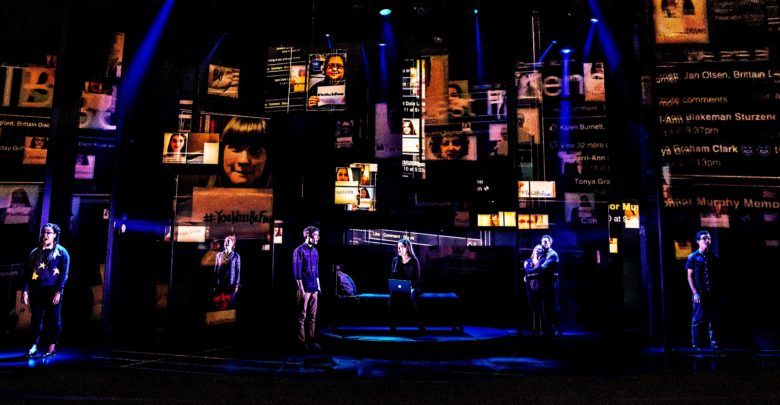Theatre Review: Jubilee’s “Dear Evan Hansen”
Dear Evan Hansen provides an important message about mental illness, loneliness and human connections
 Supplied
SuppliedDear Evan Hansen is a devastatingly heartbreaking musical with a wonderful message of hope and an evocative reminder that there’s always a light at the end of a dark tunnel.
The show revolves around 17-year-old Evan Hansen (Stephen Christopher Anthony). Evan has a massive heart and aching desire to connect with others, but ends up feeling extremely isolated and lonely because of his social anxiety. He asks, “have you ever felt like you could disappear? Like you could fall, and no one would hear?”
Evan’s anxiety also affects his ability to talk to his longtime crush, Zoe Murphy (Stephanie LaRochelle). Zoe’s older brother, Connor, experiences mental illness too, and shares Evan’s feeling of being forgotten and invisible at their high school. Although Connor and Evan never become friends, they have a brief encounter and are unexpectedly linked through an elaborate series of lies that Evan tells the Murphy family.
The musical’s soundtrack by Benj Pasek and Justin Paul (La La Land, The Greatest Showman) is a series of raw laments including “Words Fail,” existential cries for help like “Waving Through a Window,” and empowering anthems such as “You Will Be Found.” Stephen Christopher Anthony has the massive task of bringing the beloved yet flawed Evan Hansen to life. He successfully carries the show’s emotional weight on his shoulders while bringing his own original blend of vulnerability, brokenness, and desire to love and be loved to the titular character.
Social media is like its own character in the show, and its significance is highlighted through the projection and scenic design by Peter Nigrini and David Korins respectively; massive panels all over the stage depicting people’s social media profiles across various platforms appear, flash, flicker, and even speak during musical numbers. Dear Evan Hansen shows us the incredibly transcendent power of the digital age to connect people while exploring the dangers of putting too much online and how quickly social media can turn dangerous.
Mental illness, loneliness, and youth suicide are central themes in the show, and Dear Evan Hansen tackles these issues head on. At times the show turns incredibly dark and examines what it is like to live your life in the background — unseen, unnoticed, and invisible to the people around you. It speaks to the fear of being inadequate, feeling unloved, and trying to hide our inner turmoil for fear of judgement or further isolation. Near the end of the show, Evan cries out in a song, “I’d rather pretend I’m something better than these broken parts, pretend I’m something other than this mess that I am, cause then I don’t have to look at it, and no one gets to look at it.”
While the show does delve into dark and upsetting topics, it is also marked by a deep sense of hope and empowerment. It reminds us that nobody should be allowed to live their lives unseen and then disappear from this planet as if they were never here. Even if you haven’t done great things and achieved success, your life still has value. Being remembered doesn’t mean being popular; it means being recognized as a human. Evan reminds us that everyone deserves to be loved, seen, and valued no matter where they come from or who they are. No one deserves to be forgotten.
Dear Evan Hansen shows us that it’s okay to be hurting inside and it’s okay to talk about it. It shows us the importance of human connections and how essential it is for someone to feel loved and needed by other human beings and to know that they’re not alone. Through Evan’s arc in the play, I was reminded that there’s always a light at the end of a dark tunnel. Even in the darkest of times, we can step into the sun. We will be found.




